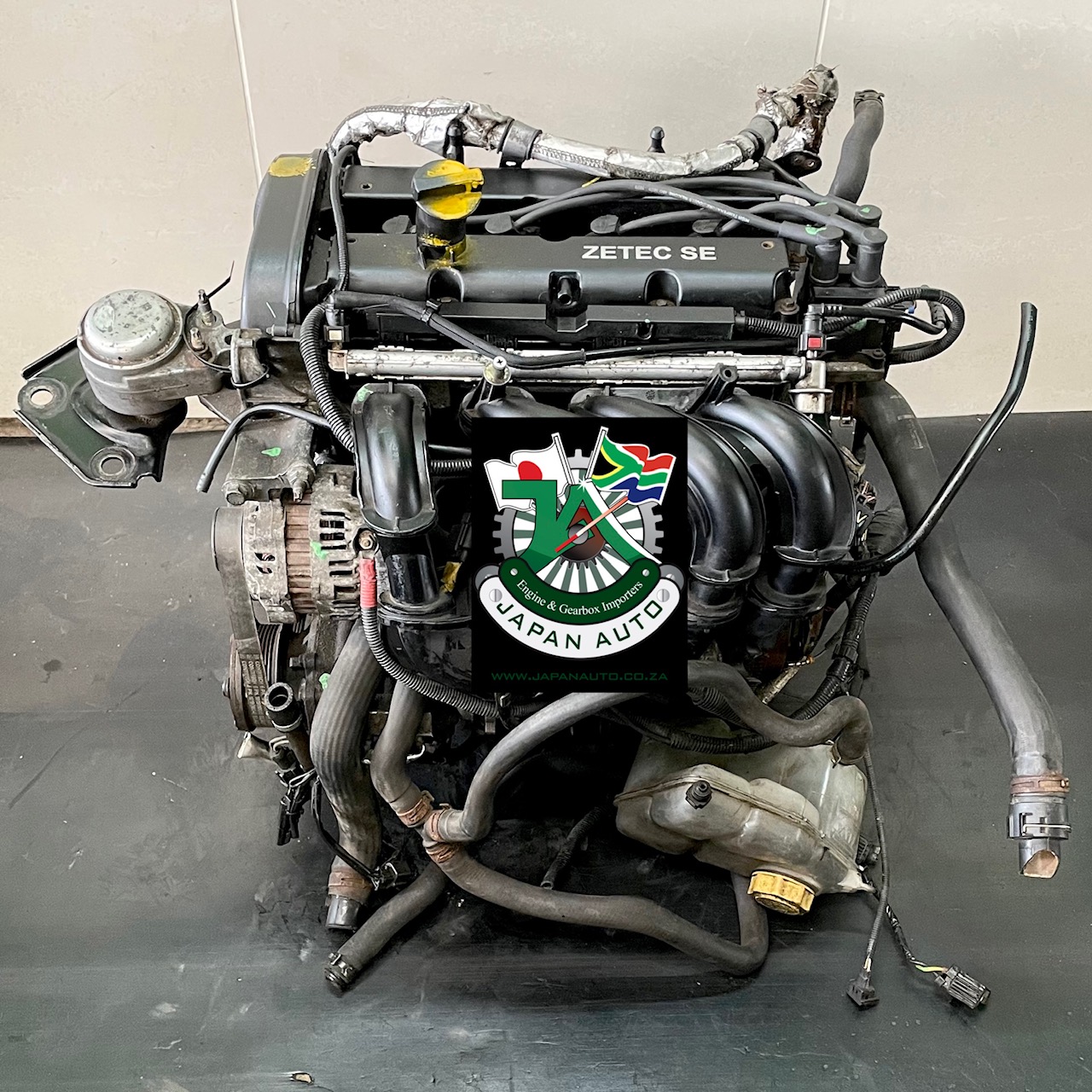Expert Tips for Optimizing Your Ford Fiesta Engine Efficiency
Expert Tips for Optimizing Your Ford Fiesta Engine Efficiency
Blog Article
Opening the Power of Engines: A Comprehensive Overview to Performance and Efficiency
Recognizing the intricate technicians of engines is essential for both performance fanatics and daily chauffeurs. The responses might redefine our technique to engine performance and effectiveness in ways that are both informing and crucial.
Comprehending Engine Fundamentals
What makes up the fundamental technicians of an engine? At its core, an engine is a machine created to transform fuel right into mechanical energy with a collection of regulated explosions or burning processes.
The crankshaft after that changes this linear activity right into rotational power, which ultimately powers the automobile. The camshaft manages the opening and closing of the valves, managing the consumption of air and fuel and the expulsion of exhaust gases. In addition, the engine counts on a very carefully adjusted fuel-air blend, ignition system, and cooling system to make certain optimum performance and efficiency.
Understanding engine essentials also entails acknowledging the relevance of engine cycles, such as the four-stroke cycle, that includes intake, compression, exhaust, and power strokes. Each phase is important in making certain the engine functions smoothly and successfully. Proficiency of these fundamental auto mechanics lays the foundation for discovering a lot more intricate engine dynamics and performance metrics, crucial for maximizing both power output and performance.
Secret Efficiency Metrics
Trick performance metrics are crucial for evaluating an engine's effectiveness and power result, providing useful insights for both customers and makers. These metrics act as standards for engine efficiency, enabling for informed choices in manufacturing, layout, and getting.
Among the primary metrics is horsepower, which quantifies the engine's ability to execute work over time. Torque, determined in pound-feet, is one more crucial metric that suggests the engine's rotational pressure, directly impacting acceleration and pulling capacity. Gas effectiveness, commonly gauged in miles per gallon (MPG) or liters per 100 kilometers (L/100km), assesses exactly how efficiently the engine converts gas into motion, affecting operational costs and ecological factors to consider.
Furthermore, thermal performance actions how well an engine transforms gas power into beneficial job, revealing understandings into power losses primarily with warmth. Emission degrees, including carbon dioxide and NOx, are additionally vital, showing the engine's environmental impact and conformity with governing requirements.

Tuning Methods for Performance
Tuning methods play a considerable duty in improving engine effectiveness by optimizing performance metrics identified in earlier discussions (ford fiesta engine). Numerous techniques exist to fine-tune an engine, each adding to improved fuel economic situation and reduced discharges
One reliable technique is readjusting the air-fuel proportion, making sure the engine operates within the optimum burning regime. A leaner mix can enhance fuel performance, however it needs to be balanced to avoid misfires or engine knock. In addition, reprogramming the engine administration system content can alter criteria such as ignition timing, which further boosts performance while maintaining power result.
An additional important approach includes changing the intake and exhaust systems. Upgrading to high-performance air filters and exhaust headers can minimize back stress, promoting much better airflow. This enables the engine to take a breath even more easily, bring about boosted combustion performance.
Moreover, the execution of advanced adjusting devices, like dyno screening, offers specific information that makes it possible for targeted adjustments. Regularly checking these efficiency metrics makes certain that tuning efforts produce the wanted performance outcomes. Collectively, these techniques not just boost engine performance however additionally add to long-lasting sustainability in engine operations.
Upkeep for Optimal Efficiency
Routine engine upkeep is vital for achieving optimum performance and longevity. A well-kept engine not just runs successfully yet likewise minimizes the threat of costly repair work and breakdowns. Key elements requiring regular focus include oil, filters, belts, and stimulate plugs.
Altering the engine oil at suggested periods is vital, as oil lubes moving parts and avoids overheating. Replacing oil and air filters makes sure that pollutants do not impair engine feature. Overlooking these parts can lead to minimized performance and potential engine damages.
In addition, inspecting and replacing worn belts and pipes is important to avoid abrupt failings. Timing belts, in particular, need to be replaced according to the maker's routine to prevent catastrophic engine damages.
Ignition system must likewise be examined and changed as needed, because they play a crucial function in ignition and fuel efficiency.
Future Trends in Engine Technology
Welcoming innovations in technology, the future of engine design is poised to change performance and efficiency throughout different applications. Hybrid and completely electric powertrains are ending up being significantly mainstream, supplying reduced discharges and boosted gas effectiveness.
Additionally, advancements in materials science are leading to lighter, more powerful elements that improve engine efficiency while decreasing power intake. Advanced production strategies, such as 3D printing, permit the development of intricate geometries that boost air flow and thermal administration, thus maximizing combustion procedures.
Additionally, the combination of expert system and maker understanding is readied to transform engine diagnostics and moved here efficiency adjusting. These innovations can assess substantial amounts of data in real time, More about the author enabling predictive maintenance and tailored efficiency enhancements.
Conclusion
In conclusion, unlocking the power of engines calls for a thorough understanding of their mechanics and performance metrics. Executing effective tuning strategies and sticking to routine upkeep practices significantly boost engine capacities.
Furthermore, the engine relies on a carefully adjusted fuel-air mix, ignition system, and cooling system to make certain optimal efficiency and effectiveness.
Comprehending engine essentials additionally entails recognizing the significance of engine cycles, such as the four-stroke cycle, which consists of intake, power, exhaust, and compression strokes. Mastery of these basic auto mechanics lays the groundwork for exploring a lot more complicated engine characteristics and performance metrics, necessary for maximizing both power outcome and effectiveness.

Accepting advancements in modern technology, the future of engine layout is poised to reinvent efficiency and effectiveness across different applications.
Report this page